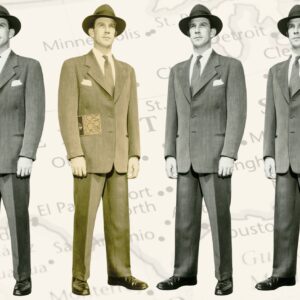
5 Audiobooks For the Bereft Sports Fan
From the NCAA to Andre the Giant to Diana Nyad
Due to coronavirus concerns, the NCAA canceled its college basketball tournament in March. Shortly after that, the NBA and NHL postponed all games indefinitely. Major League Baseball, still in spring training at the time, has not yet begun its 2020 season.
Which brings us once more to the solution to most problems: books. While ESPN reruns the 2011 Beef O’Brady’s Bowl and The Mighty Ducks trilogy, publishers continue to release new books about our favorite sports.
This month I recommend five new audiobooks about baseball, basketball, swimming, and professional wrestling—yes, it’s a sport. Read them while doing yoga in your living room. Yoga is a sport, too. In a pandemic, we’re redefining everything.
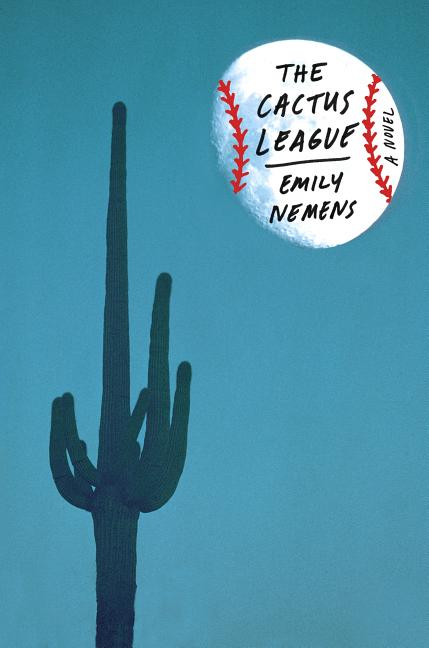
Emily Nemens, The Cactus League
Narrated by Vivienne Leheny, Malcolm Hillgartner, Will Ropp, James Patrick Cronin, Julie McKay, Stephen Dexter, Stephen Graybill, Nicol Zanzarella, and Thom Rivera · Farrar, Straus and Giroux/Brilliance Audio
9 hours and 5 minutes
At the time of this writing, Major League Baseball continues to negotiate its pandemic-shortened season. Until it’s back, The Cactus League will pinch-hit nicely. Inventive, ambitious, and often hilarious, Emily Nemens’s debut novel should join The Natural and North Dallas Forty on the shelf of classic sports novels.
The Cactus League takes its title from MLB’s spring training based in Arizona. Playing left field for the fictional Los Angeles Lions is Jason Goodyear, “coming off a Gold Glove and a close second place in American League MVP voting, coming off a possible divorce and a lonely drive across the desert in his busted old Jeep.” Goodyear’s travails provide the novel’s central thread, but each chapter unfolds from a different point of view, offering a panoramic narrative that extends far beyond the field.
Nemens’s book isn’t a novel in stories, though a full cast of audiobook narrators gives each chapter a distinctive feel. The usual lack of credits makes it impossible to single out narrators by name, but the entire cast is excellent, matched well to their character’s personalities. The difference in audiobook parlance between “performed by” and “narrated by” often seems arbitrary—Brilliance Audio goes with “performed by” for this title—but this cast keeps drama to a minimum, treating the text with welcome reverence.
Structured as a nine-inning game, The Cactus League’s similarities to the national pastime feel especially pronounced in the audiobook. Voice after voice, another narrator steps to the plate, thoughtful and contemplative, adding to the larger tale of disappointment and hope.
“The difference separating ballplayers from everyone else,” thinks Tammy, a pitcher’s ex-wife, “is that they care about something tremendously and have since they were little… Most people, whether they’re living in small towns or big cities or sprawl, spend their lives dealing with crying babies and stupid jobs, whatever life throws at them. Baseball players? They do the throwing.”
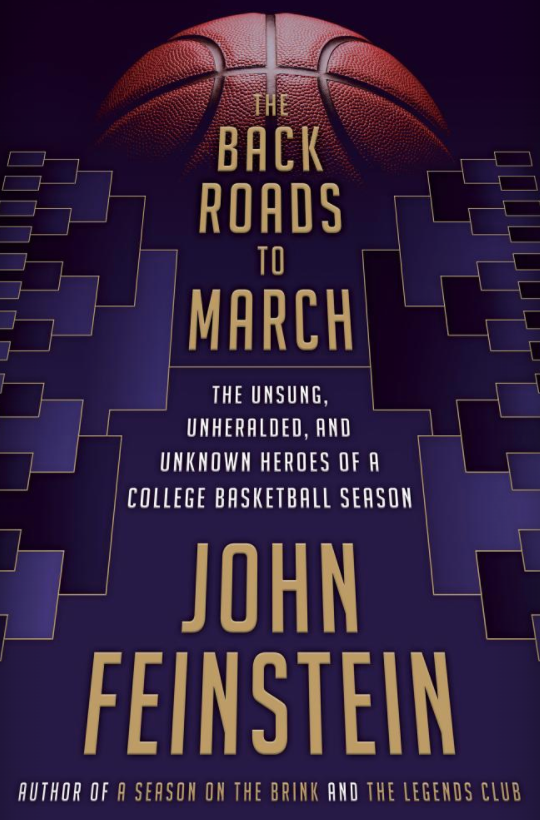
John Feinstein, The Back Roads to March: The Unsung, Unheralded, and Unknown Heroes of a College Basketball Season
Narrated by John Feinstein · Doubleday/Random House Audio
14 hours and 8 minutes
The college basketball season had reached the conference-tournament stage when the COVID-19 pandemic caused the NCAA to cancel all remaining games, including March Madness. There might be no better book to fill that void than The Back Roads to March, the latest from venerable Washington Post sportswriter John Feinstein.
For many, the greatest pleasure of the NCAA tournament comes from upsets and underdogs, and Feinstein chronicles the 2018-2019 season through the lens of small and so-called mid-major programs. These are the schools most responsible for busting our brackets in the office pool, teams like the University of Maryland Baltimore County, who became the first 16 seed in history to knock off a 1 seed. Feinstein visits the UMBC Retrievers for an early-season contest, and it’s to the author’s credit that more material is culled from coaches, players, and program histories than the games themselves.
Feinstein isn’t the kind of polished narrator we normally encounter in audiobooks, which makes him a charming companion for a book about college basketball. “To win the game is great, to play the game is greater, but to love the game is the greatest of all,” Feinstein quotes the sign that hangs in the University of Pennsylvania’s Palestra. It’s the oldest major college arena still in use today, and Feinstein describes it with audible reverence. A New Yorker by birth—and lingering accent—his is not a mellifluous voice, and the narration can feel, sometimes for better and occasionally for worse, like a friend holding court at the bar on his favorite subject.
Another pleasure of college basketball comes from the stories on every team, of game-winning efforts from graduate students in their second year of law school to coaches in their seventies who keep working through cancer treatments. Such stories can be found on any team, even perennial powers like Duke, Kansas, and the University of Virginia. The latter, fans will recall, won the school’s first championship only a year after being the aforementioned 1 seed who fell to the 16 seed. These are the stories covered widely, however, and it’s refreshing to see Feinstein relegate them to a short epilogue.
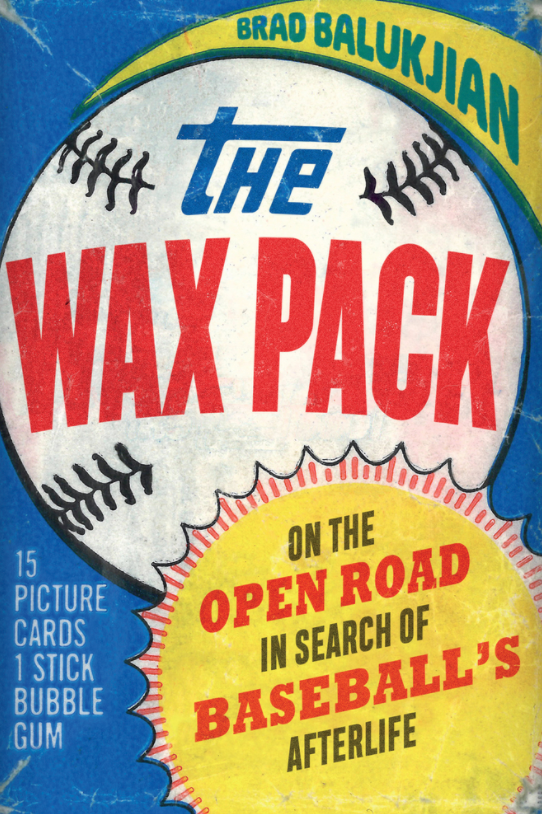
Brad Balukjian, The Wax Pack: On the Open Road in Search of Baseball’s Afterlife
Narrated by Brad Balukjian · University of Nebraska Press/Tantor Audio
9 hours and 57 minutes
At first blush, Brad Balukjian’s first book sounds gimmicky. A lifelong baseball fan, Balukjian opens a pack of 1986 baseball cards, the year he first remembers collecting, and vows to track down all the players he finds inside. The resulting road trip, instead of a gimmick, becomes a unique book both revealing and thoroughly satisfying.
A self-described weird kid who underwent years of therapy for a debilitating stutter, the author’s baseball heroes “were the journeymen and benchwarmers, the underdog fringe players who needed to work like mad just to stay in play.” His passion for the game comes through in his audiobook narration, as do his sincerity and humor. “Unlike literary quests like Eat Pray Love,” writes Balukjian, “the only advance I have is the worry that Vince Coleman might be a dick.”
Like opening a pack of cards, the book unfolds with wonder and mystery from who we’ll meet next. The bigger surprises come from how generous many players are with their time and stories. The author fetches Happy Meals with Rance Mulliniks, bowls with Randy Ready, plays a party game called Cards Against Humanity with the family of Jaime Cocanower. During the latter, the author ponders whether or not his partner is familiar with one of the words on their card, bukkake. He delves into racism, divorce, and drug addiction with Garry Templeton, Steve Yeager, and the youngest son of Doc Gooden, respectively. Gooden himself is one of the few Wax Packers who elude Balukjian, and it’s a testament to the author’s storytelling that these chapters are some of the most fascinating.
Now an adjunct professor of biology, Balukjian’s trip lets him explore his own regrets and shortcomings. Audiobook readers will hear self-doubt and discovery while he narrates visits with his father and an ex-girlfriend. The former players serve as temporary mentors, offering wisdom gleaned less from baseball than marriages, friendships, and parenthood.
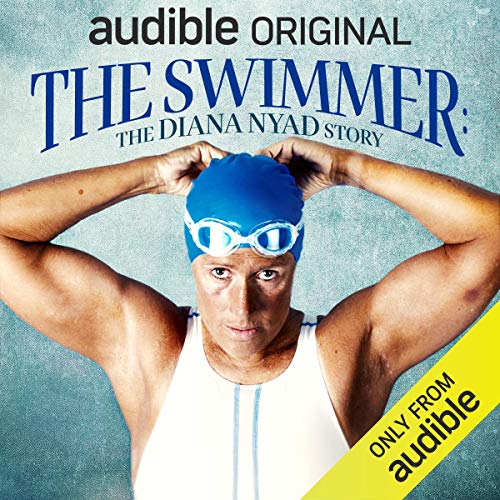
Diana Nyad, The Swimmer: The Diana Nyad Story
Narrated by Diana Nyad and Bonnie Stoll · Audible Original
1 hour and 20 minutes
“Sports are the only profession,” says Diana Nyad, “where at a world-class level you must retire young.” In September 2013, at age 64, Nyad refuted this, becoming the first person to swim the one hundred eleven miles of shark-infested ocean between Cuba and Florida without a shark cage. A former world-champion swimmer, she had attempted the feat in her twenties, and after failing, she didn’t swim another stroke for three decades.
Nyad chronicled her record-breaking swim in 2015’s Find a Way, a full-length memoir. She has adapted parts of that book into The Swimmer, a one-woman show Audible has released as a short audiobook.
A funny, natural performer, Nyad acts, sings, and interacts with the head of her swimming expedition, Bonnie Stoll. If acting, singing, and interaction don’t sound like traits of an audiobook, that’s often true. It’s also true that the narration of many audiobooks could be described as acting. Some narrators sing excerpts of songs referenced in the text, and countless audiobooks feature alternating, i.e. interacting, narrators.
Does the presence of a live audience make The Swimmer any less of an audiobook? If so, would a collection of poetry read and recorded in front of a live audience not be an audiobook of that collection? Would a published copy of Hamlet or Lysistrata meant to be performed still be called a play?
Like a play, Nyad’s performance is clearly scripted. This isn’t the case with other recent Audible Originals from Patti Smith and James Taylor, which are really concerts peppered with stories, although Smith’s performance includes portions of her reading from her memoirs. Labels can be complicated. They can also be arbitrary, as more and more of us read with our ears.
Whatever we call The Swimmer, Nyad’s account is absorbing and moving. Memories of encouragement from her Greek father reveal the origins of her journey. She describes obstacles like the poisonous box jellyfish in riveting detail. More startling is another obstacle, Nyad’s molestation by a swimming coach as a teenager, far more harrowing in the details she omits.
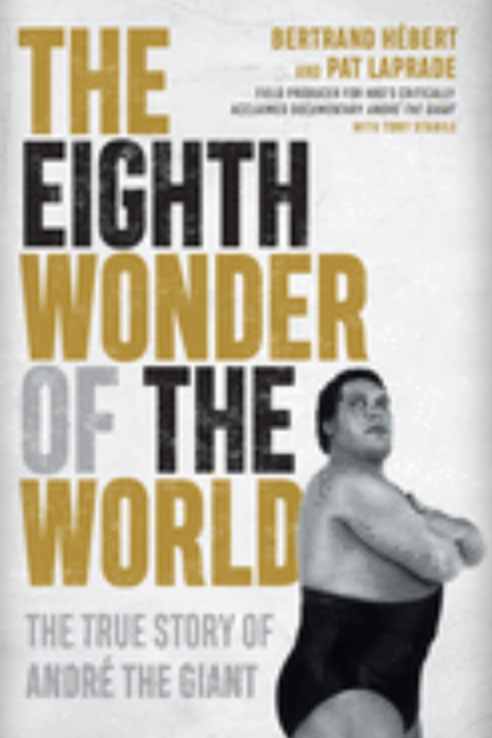
Bertrand Hébert and Pat Laprade, The Eighth Wonder of the World: The True Story of André the Giant
Narrated by Graham Rowat · ECW Press/Tantor Audio
13 hours and 24 minutes
Although professional wrestling shows have continued during the pandemic, declared an essential service by Florida’s governor, fans can revisit the bygone days of live audiences in a new biography of André the Giant. Co-written by wrestling historian Bertrand Hébert and Pat Laprade, a field producer for HBO’s acclaimed 2018 documentary of André the Giant, The Eighth Wonder of the World sorts through myths and legends to reveal a sad, generous man recognized by most and known by few.
Born in France to a Bulgarian father and Polish mother, André Russimoff was a 13-pound baby, though the condition that led to his unique appearance, acromegaly, didn’t develop until his teens and twenties. The authors investigate when André might have become aware of his condition, treatable even then with the removal of a tumor. Either he dismissed his doctors’ prognosis of a shortened life or decided that what made him unique was worth the trade-off. “Like in a wrestling match, [André] knew his outcome in advance,” lending his story another layer of tragedy.
The audiobook’s producers couldn’t have selected a more fitting voice for the biography of a pro wrestler. Graham Rowat narrates with a lightly stilted timbre reminiscent of the great wrestling commentators. Older wrestling fans might be reminded of Gordon Solie or Tony Schiavone, minus their regional diction. At the same time, Rowat settles easily into the quieter, melancholy moments, of which there are many.
Rowat’s announcer voice comes in handy for extensive coverage of André’s wrestling matches, perhaps too extensive for the casual fan. More than his time in the ring, where being larger than life was an advantage, it’s life beyond wrestling where peace and comfort proved elusive. His death at age forty-six, failed attempts to connect with his teenage daughter, and crippling physical pain speak for themselves. Hebert and Laprade best convey the sadness of being a giant through mundane details. André loved movies, but because he couldn’t fit in a regular seat, he watched from the aisle on a bench he carried from the lobby.
Toward the end of his career, in a feud with Randy “Macho Man” Savage, André’s real-life disdain for his opponent was well-known. Before their matches, André pleaded with Savage not to slather himself in baby oil, never explaining why. “Most hotel rooms were not equipped for a guy André’s size, and taking a shower was almost impossible for him. Cleaning himself properly was hard enough as it was. Imagine having to remove that much baby oil.”
James Tate Hill
James Tate Hill is the author of a memoir, Blind Man’s Bluff (W. W. Norton, 2021). His fiction debut, Academy Gothic, won the Nilsen Literary Prize for a First Novel. He serves as fiction editor for Monkeybicycle and a contributing editor for Lit Hub, where he writes a monthly audiobooks column.
















